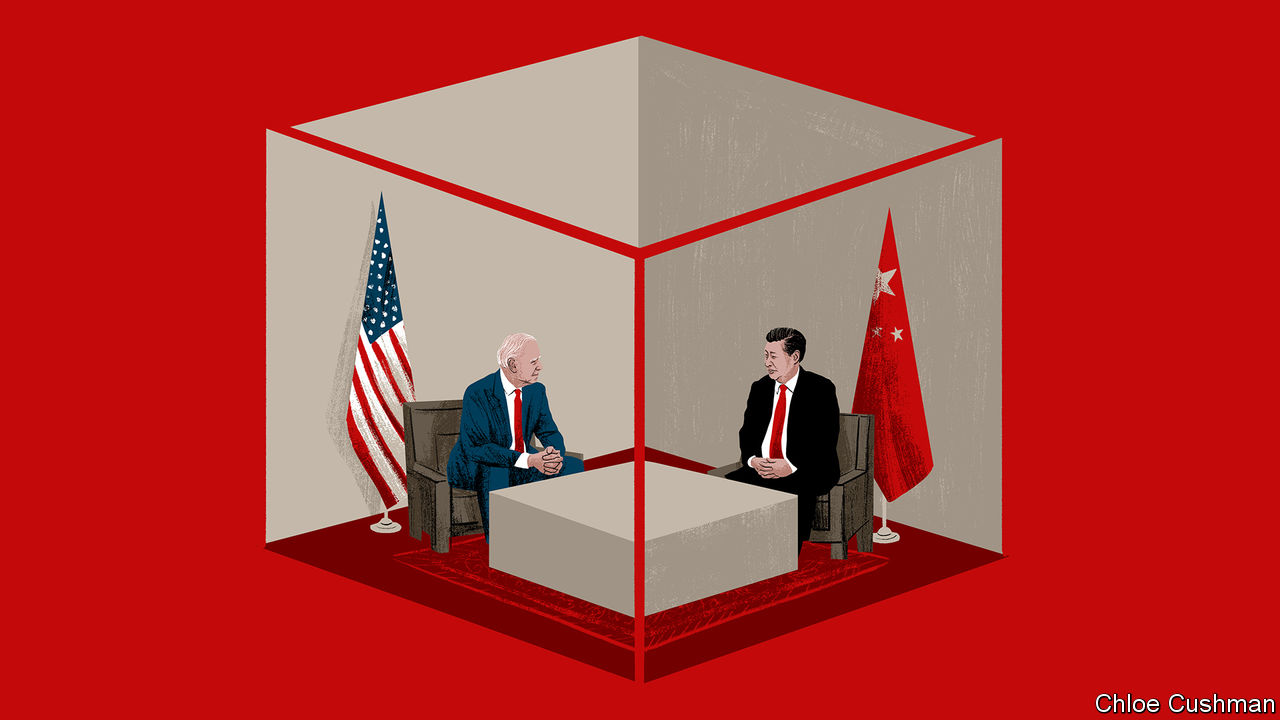A tactical move to boost China’s economic and diplomatic interests
When invited to sum up the state of China’s relations with America, a close observer in Beijing drops a surprising literary reference, comparing the countries to damned souls sent to Hell in “Huis Clos” (“No Exit”), a play by Jean-Paul Sartre. In the gloomy Frenchman’s masterwork, Hell turns out to be an antique-filled sitting room peopled by unlikeable strangers. These wretches come to realise that they must endure each other’s company, and mutual contempt, for all eternity. The afterlife needs no red-hot pokers to be a torment, gasps one of Sartre’s sinners: “Hell is—other people!” The reference to existential angst by the observer in Beijing is more than startling. It is meant to be encouraging.
The case for optimism runs as follows. For two years Sino-American relations were dangerously dysfunctional. To protest, successively, against a visit to Taiwan by the then-speaker of the House of Representatives, Nancy Pelosi, and America’s shooting down of a Chinese spy balloon, China suspended high-level contacts for months. Both governments now accept that they are doomed to manage differences responsibly, as the world’s greatest economic and military powers, largest emitters of greenhouse gases and interdependent trading partners. That duty to co-exist is dictated by the judgment of history and by the expectations of other countries—even if leaders in Beijing and Washington have come to believe that their core value systems, and many of their most cherished ambitions, are incompatible.



This sounds positive, pointless pissing matches serve no one. I’m sure it’ll be a bumpy road but it would be cool to live in a less hostile world.